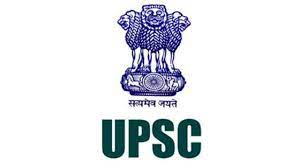Syllabus Pattern Questions and Answer U P S C- 2023
UNION
PUBLIC SERVICE
COMMISSION-2023



 Syllabus, Pattern, Questions, and Answers: A Comprehensive Guide to the UPSC 2023
Syllabus, Pattern, Questions, and Answers: A Comprehensive Guide to the UPSC 2023- Introduction: The UPSC examination is a highly esteemed and challenging exam that paves the way for a career in Indian civil services. To succeed in this competitive exam, it is crucial to have a clear understanding of the syllabus, exam pattern, and the types of questions asked. In this blog, we will provide you with a comprehensive guide to the syllabus, and exam pattern, along with sample questions and answers, to help you prepare effectively for the UPSC 2023 examination.
- Syllabus for UPSC 2023: The UPSC examination comprises three stages: the Preliminary Examination, the Main Examination, and the Personality Test (Interview). Let's focus on the syllabus for the Preliminary Examination:
General Studies Paper-I:
Current events of national and international importance- History of India and the Indian National Movement
- Indian and World Geography
- Indian Polity and Governance
- Economic and Social Development
- Environmental Ecology, Biodiversity, and Climate Change
- General Science
Civil Services Aptitude Test (CSAT):
Comprehension- Interpersonal skills, including communication skills
- Logical reasoning and analytical ability
- Decision-making and problem-solving
- General mental ability
- Exam Pattern for UPSC 2023: Understanding the exam pattern is crucial for effective preparation. Here is the pattern for the UPSC 2023 Preliminary Examination:
General Studies Paper-I:
Duration: 2 hours- Total Marks: 200
- Multiple-choice questions (MCQs) with four options
- Negative marking: One-third (0.33) of marks are deducted for each incorrect answer
Civil Services Aptitude Test (CSAT):
Duration: 2 hours- Total Marks: 200
- MCQs test comprehension, logical reasoning, analytical ability, decision-making, and problem-solving skills
- Negative marking: One-third (0.33) of marks are deducted for each incorrect answer
- Sample Questions and Answers: To provide you with a glimpse of the types of questions asked in the UPSC 2023 examination, here are a few sample questions:
- Question 1 (General Studies Paper-I): Who is considered the father of the Indian Constitution? Answer: Dr. B.R. Ambedkar
- Question 2 (General Studies Paper-I): Which country does the Tropic of Cancer pass through? Options: a) India b) China c) Brazil d) Australia Answer: a) India
- Question 3 (Civil Services Aptitude Test - CSAT): In a certain code language, if 'APPLE' is coded as 'ZRQQB,' how would 'ORANGE' be coded? Options: a) NMQZPD b) NMQZPC c) NMQZQB d) NMQZQC Answer: c) NMQZQB
- Tips for Effective Preparation:
- Develop a comprehensive study plan covering all subjects and allocate sufficient time to each topic.
- Make use of standard textbooks, reference materials, and online resources recommended for UPSC preparation.
- Stay updated with current affairs by reading newspapers, magazines, and reliable online sources.
- Practice previous years' question papers and take mock tests to improve your time management and assess your preparation level.
- Join online forums or study groups to engage in discussions and gain insights from fellow aspirants.
Conclusion:
- A thorough understanding of the syllabus, exam pattern, and types of questions asked in the UPSC 2023 examination is essential for effective preparation. By following a well-structured study plan, practicing sample questions, and staying dedicated to your preparation, you can increase your chances of success. Remember to stay focused, maintain a positive mindset, and keep persevering. Best of luck in your UPSC journey!
- Good Luck And ThankYou


No comments:
Post a Comment